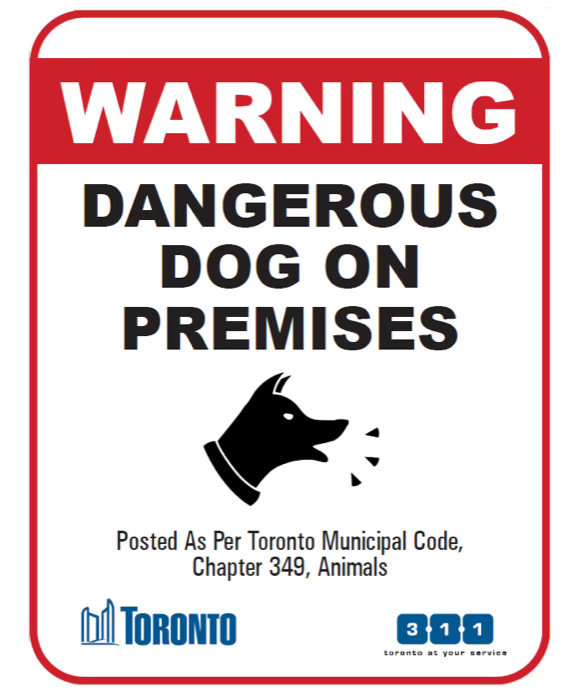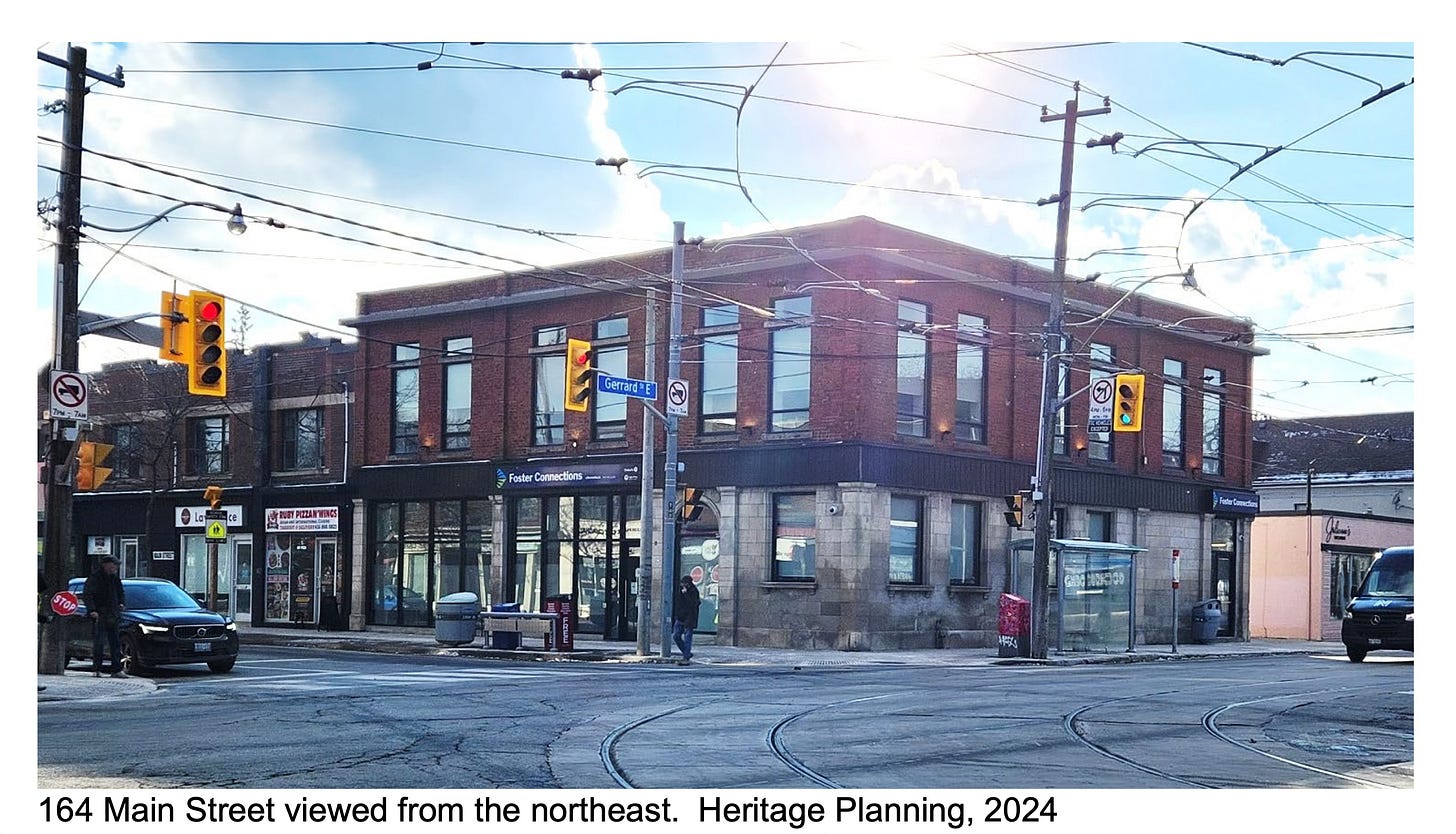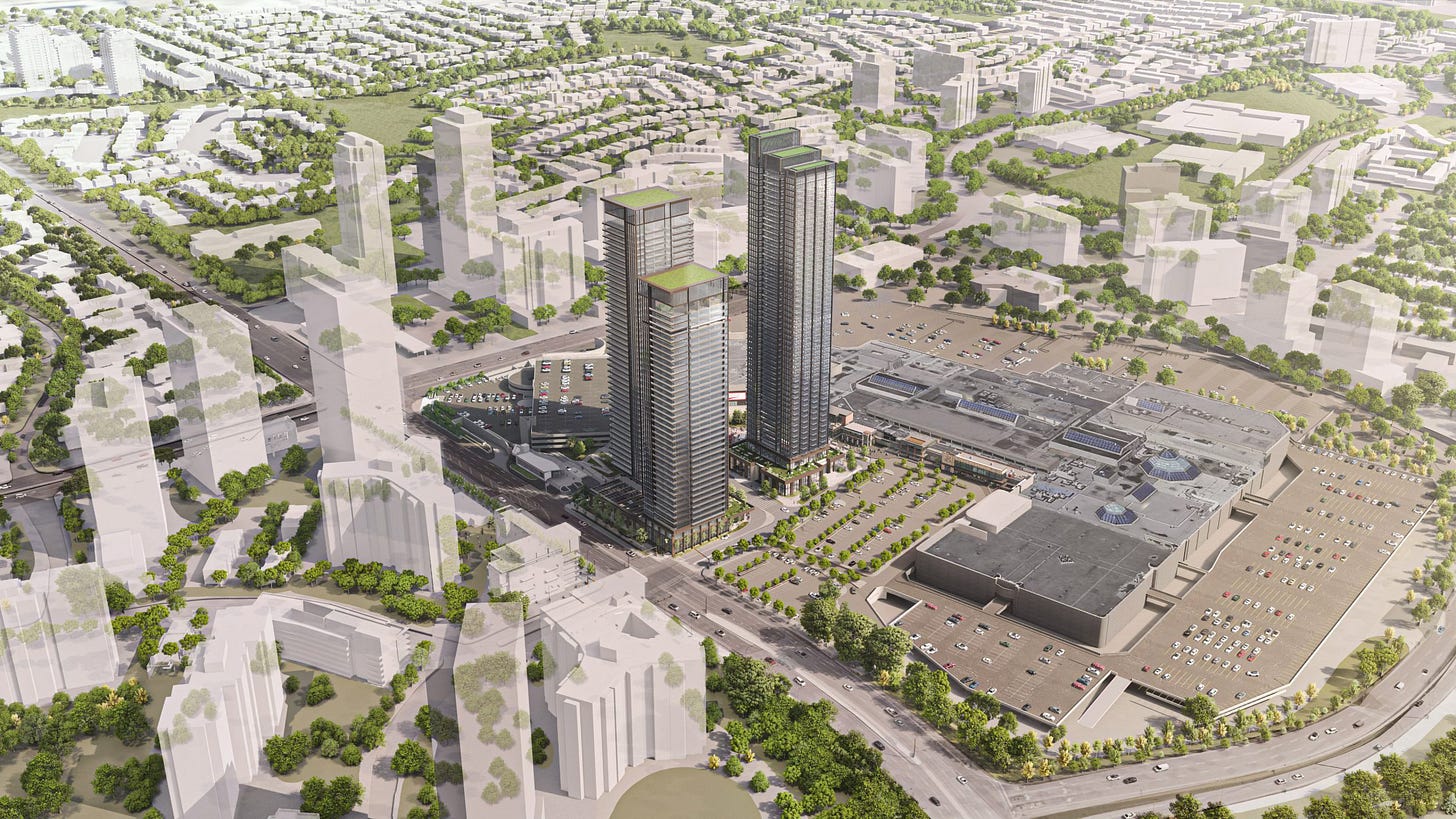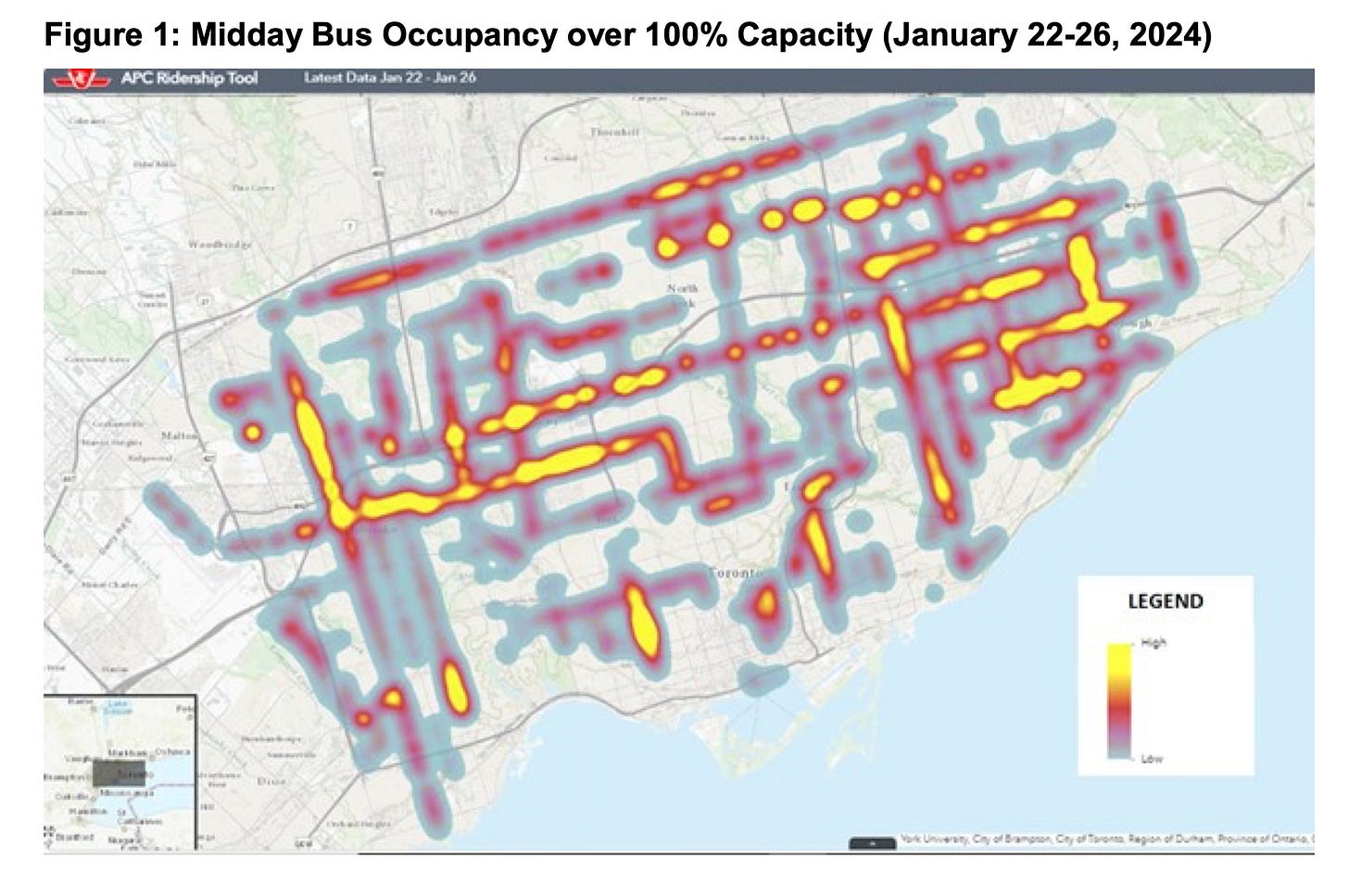Mayor Olivia Chow's first budget is in the books — here's what's next
The Week at Toronto City Hall for the week of February 19 through February 23, featuring dangerous dogs, mall parking lot developments, and a far afield fare debate
Hey there! Toronto Council spent its Valentine’s Day showing love for Mayor Olivia Chow’s residential property tax increase, the police, and suburban snow clearing. Who says romance is dead? In this issue, a quick look at the big votes — and a longer look at what’s coming next week, in the post-budget afterglow. — Matt Elliott
This issue of City Hall Watcher’s The Week at Toronto City Hall is sponsored by:

What Council Did: Budget finds supports for Chow’s tax increase, and funds for police, snow clearing and the pioneer village
Toronto Council met this week. It was a very special meeting to consider Mayor Olivia Chow’s first-ever budget.
There was a notable victory and a notable defeat for the mayor.
The victory
Chow’s proposed property tax increase — including a total 9.5% increase to the residential class — was approved on a healthy 18-8 margin.
It’s a real victory that she got 17 people to vote with her on the tax measure, winning support from several councillors who style themselves as tax-fighting fiscal conservatives.
The defeat
Chow lost the fiscal battle with the Toronto Police. In the weeks leading up to the budget meeting, the mayor seemed pretty resolute that she would not give the cops the extra $12.6 million included in the budget version adopted by the police board but not the versions proposed by City staff and the mayor.
But she backed down.
The day before the budget, the Star’s Ben Spurr and David Rider reported Chow was reconsidering. At the meeting, Councillor Amber Morley passed a motion to put the $12.6 million into the police budget, with Chow’s support.
It carried 21-5, with opposition from Deputy Mayor Ausma Malik, Councillor Alejandra Bravo, Councillor Paula Fletcher, Councillor Josh Matlow and Councillor Gord Perks.
All five opposition votes came from members of Chow’s Executive Committee.
For Chow, the strategic calculation was that losing a Council vote — and she almost certainly would have lost if she had pressed forward — would show weakness when Chow needs to show strength. She’s got a bunch of other important Council votes in the pipeline related to the Long-Term Financial Plan, and the last thing she needs is an emboldened opposition.
The compromise also allowed Chow to save face (to a degree) by ensuring the motion referred to potential incoming provincial and federal funds instead of simply drawing on City funds. It also made room for another motion requesting the police “provide a multi-year staffing plan” with “clear goals and timelines” to reduce response times and improve accountability.
Still, it’s a hell of a precedent. It legitimizes the idea of a public agency or corporation running a PR campaign about a budget request and strongly suggests the police will publicly campaign for and probably receive future budget increases, too.
The rest
Council also voted 26-0 to add windrow clearing in the suburbs back to the budget (at a cost of $4.1 million), voted 25-1 to spend $750,000 on more bylaw enforcement officers, and voted 25-1 to spend another $970,000 on tree planting and maintenance. They also voted 23-3 to give another $200,000 to Black Creek Pioneer Village. Good news for those who love butter churning.
➡️ For my full coverage of the budget meeting, view my thread on Mastodon. I’ll have a detailed look at all the votes and changes to the budget in next Tuesday’s subscriber issue.
Monday, February 19
👩👩👧👦 It’s Family Day in Ontario, all day long. City Hall is closed.If there’s still snow on the ground, let’s go sledding. I heard it’s legal now.
Tuesday, February 20
📉 The Economic & Community Development Committee meets at City Hall at 9:30 a.m. 👀 Watch Live: Committee Room 1, YouTubeDOG BITES MAN, CITY BITES BACK: After a high-profile dog attack in Councillor Paula Fletcher’s ward last summer, the committee will consider recommendations designed to give Toronto’s dangerous dog bylaw more teeth.
The biggest change? Naming and shaming. The City proposes publicly listing active “dangerous dog orders.” Orders are given when dogs are involved in a single serious incident involving injury to a person or another dog or multiple less serious incidents.
The report recommends a public website listing information about active dangerous dog orders, including the first three characters of the postal code (the FSA) and the dog’s name, breed and colour. The name of the owner will not be included due to privacy concerns.
The idea, according to the report, will be to improve safety by “notifying the public where Dangerous Dog Orders have been issued,” which will, in turn, help the public “take appropriate action for their safety,” like, I guess, keeping an eye out for dogs that match the description on the website.
The report also acknowledges a possible deterrence factor of the public information, as people might be a bit more careful with their dogs if they know their dogs could end up on a public website.
Once a dangerous dog order is given — assuming there is no successful appeal to City Hall’s Dangerous Dog Review Tribunal — the owner must muzzle the dog when outside the house and post a sign on their home indicating a dangerous dog dwells within.
There’s a problem with the signage part, too. The report acknowledges the City has never gotten around to creating “standardized requirements for what the sign must look like.” It’s a bit of a signage free-for-all.
To address that, the report also provides a new “Dangerous Dog on Premises” standard sign that owners will have to post. It’s got a little icon of a barking dog on it.
INTERSECTIONAL PLANNING: The Committee will consider a long-percolating “Community Development Plan” for the Jane-Finch neighbourhood. It’s partly motivated by the Finch West LRT, which we all pray will open soon.
It’s a 25-year plan, with the intent of updating it every ten years or so. The City has identified eight “action” areas, including community safety, climate action, Indigenous reconciliation, and anti-displacement.
GET YOUR MOTOR RUNNING: In an addendum to the recent report reviewing the City’s noise bylaw, there’s a separate report looking at noise from vehicles. Staff previously proposed a decibel limit of 92 dB(A) for idle vehicles and 96 dB(A) for vehicles such as revving cars or motorcycles.
The committee asked staff to look at whether the limits could be lowered. The report recommends sticking with the original recommendation, citing a report from an acoustic sound expert and precedents from other municipalities.
Previously, in City Hall Watcher
For paid subscribers of City Hall Watcher, this week’s issue has:
The most detailed breakdown of Toronto Police spending you’ll find anywhere, with a look at five years of line-by-line budgets.
Next week:
A detailed budget wrap-up, with graphical looks at what changed, the winners, the losers, and what’s next.
Subscribe today for ad-free access to weekly subscriber-exclusive issues. They typically come out on Monday, but on weeks with a holiday — like next week — they come out on Tuesday.
Wednesday, February 21
🌳 Toronto & East York Community Council meets at City Hall at 9:30 a.m.Watch Live: Committee Room 1, YouTubeHERITAGE HABIT: Are a bunch of two-storey buildings with retail storefronts around Main & Gerrard a part of our heritage?
Staff are arguing yes, recommending that ten addresses get listed on Toronto’s heritage register because the group of buildings “anchors the historically significant commercial and institutional core of the former municipality of East Toronto.“
The item is especially notable because it falls within the ward boundaries represented by Councillor Brad Bradford, who has advocated for removing barriers to building more housing. While heritage listing doesn’t prevent redevelopment, a lot of developers have protested heritage requirements for slowing down the approval process.
ANOTHER CYCLE: In December, Council referred an item that would have granted the developer of 1404-1408 Yonge Street permission to close part of the midtown Yonge bike lanes for almost three years back to committee. It was on the January agenda for this community council, but was pushed back again. Now it’s up for consideration again.
Councillor Josh Matlow said he’s worked out a compromise to reduce the impact of construction. We’ll perhaps get details on the new plan at this meeting — or maybe another deferral.
AND ALSO:
Staff recommend declaring the area around 363-391 Yonge Street as a “Class 4 Noise Area”, allowing construction workers to make more noise than usually permitted as they construct an 85-storey skyscraper.
A 14-storey development at King West & Strachan Avenue is seeking the closure of a sidewalk and bike lanes for nearly three years.
🏆 The Bid Award Panel meets via video conference at 2 p.m.CONTRACT AWARD OF THE WEEK: $813,305 for the FIFA World Cup traffic planning.
Thursday, February 22
🌳 North York Community Council meets at North York Civic Centre at 9:30 a.m.Watch Live: North York Civic Centre Council Chamber, YouTubeHEY NO FAIRVIEW: Staff recommend rejecting a plan to redevelop Fairview Mall by adding 4,500 housing units across 12 buildings. The mall would be retained. Staff say the infrastructure isn’t in place to support the scale of the development.
They’re recommending the Community Council reject an Official Plan Amendment that would prepare the way for the eventual full development and a zoning amendment that would allow for the three towers in the first phase, which would be built on the mall parking lot.
AND ALSO:
The Blue Ridge Road Cul-de-sac item is back on the agenda after it was deferred last month. Councillor Shelley Carroll has been pushing to close the cul-de-sac near Blue Ridge Park to car traffic due to concerns that people are using the space to meet and make various transactions.
Staff are recommending approval to demolish 102 TCHC units to make way for a new Lawrence Heights community recreation centre, part of the ongoing Lawrence Heights revitalization project. There’s a program to relocate tenants.
Councillor Jon Burnside wants to designate a section of Don Mills Road as a community safety zone, allowing photo radar to be used.
🐕 The Dangerous Dog Review Tribunal meets via video conference at 9:30 a.m.DOG DAY MORNING: The tribunal will consider muzzle order appeals for German Shepherd Rommel, Mastiff Surfwave and Rottweiler Archer.
The Surfwave case, complicated because it involves a foster dog, has former journalist Lorne Honickman involved as counsel for the foster agency.
🚇 The TTC Board meets at City Hall at 10 a.m.Watch Live: Committee Room 2, YouTubeFIELD TRIPS: The TTC board will tangle with a report responding to a request to look at whether the transit agency could provide free fares for teachers and students who use the TTC to go on field trips. (This would apply to students older than 12 — younger people already ride free.)
The report does not recommend any changes to current policy, pointing out that the TTC does not have any room on its bus network to accommodate “new groups of 20-40+ students, teachers, and parents travelling together” and that a free field trip program would cost between $1.1 million and $1.9 million per year.
To illustrate the bus capacity issue, the report shows an interesting map of bus routes in the middle of the day operating above 100% capacity. It’s striking to see so many routes facing capacity issues outside the rush hour period. Since the pandemic, this City has spent a lot of time handwringing about how to get riders back to transit — seems like bus riders are already back.
For the record, the report also throws in an estimate of what it would cost to make fares free for everybody 18 or under. It’s between $21.7 million and $43.5 million per year.
AND ALSO:
After Mayor Olivia Chow found money in her budget for the busway that’ll temporarily replace the Scarborough RT, the board will review plans to reallocate $67.9 million for the project. The money will mostly come from a long-term TTC project to build a maintenance and storage facility that will help expand the capacity of the Line 1 subway. Since that project is already short of funds needed to push it forward, taking some money from its budget is seen as pretty low impact.
The TTC Board will be officially asked to sign off on the Council-endorsed plan to rename Dundas Subway Station after TMU and start a process to rename Dundas West Station by 2025.
TTC CEO Rick Leary’s monthly report includes news that a shortlist of bidders has been determined for the Bloor-Yonge expansion project, with construction “expected to begin as early as 2026” and that the “One Fare” partnership eliminating double fares for TTC riders transferring to GO and other GTA transit agencies will start on February 26.
Friday, February 23
✅ The Audit Committee meets at City Hall at 9:30 a.m.Watch Live: Committee Room 1, YouTubeAUDITING THE AUDITOR: City AG Tara Anderson has an annual report concluding that the City achieved savings of about $387 million via audits between 2019 and 2023. Given it only cost $32 million to run the AG office over the same period, that’s a return of $12 for every dollar invested. Pretty good.
AND ALSO:
The AG has also completed a review of the intake process for building permits. She found 55% of permit applications weren’t reviewed within legislated deadlines, with the average delay in processing an application being 17 days. And no one can really say why: “Currently, the reasons for delays are not tracked.”
The Week After Next
The Infrastructure & Environment Committee meets on Tuesday. The Planning & Housing Committee meets on Wednesday. And in the main event, Mayor Olivia Chow’s Executive Committee meets on Thursday. The agenda is tentatively set to include a report on implementing a commercial parking levy.
The Far-Flung Future
After a couple of quiet weeks to make room for the FCM Board Meeting and March Break, Council’s next meeting starts on March 20.
Feedback? Tip? Email Matt Elliott. For advertising inquiries, email Sean Hansel.






